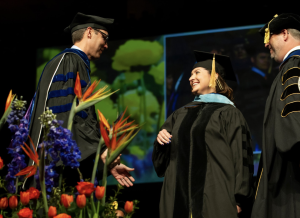Introduction

Our primary purpose is to provide each of our students with timely, knowledgeable guidance at each stage of their advanced graduate program. All of the faculty and staff in our Department of Educational Technology desire for our students to have a successful learning and research experience during the time that they are enrolled in our programs.
Program Learning Outcomes
- Locate and synthesize literature in educational technology. (Ed.D. & Ed.S.)
- Collaborate with others in educational technology area (experts, peers, stakeholders, etc.) to design and implement a project. (Ed.D. & Ed.S.)
- Use knowledge and skills gained about educational technology to enhance practice and/or influence policy using accepted professional guidelines and procedures. (Ed.S.)
- Apply research methodologies to answer questions and enhance practice in educational technology using accepted professional and institutional guidelines and procedures (Ed.D.)
- Engage in critical analysis of theory as it applies to leadership in the context of educational technology (Ed.S.)
- Leverage expertise gained in a specific area of educational technology for professional practice (Ed.D.)
- Articulate research methods used in the field of education and use selected methods to answer, or potentially answer, questions about educational technology interventions. (Ed.S.)
- Engage in critical analysis of theory as it applies to leadership and culture in the context of educational technology (Ed.D.)
- Describe the challenges and opportunities that arise at the intersection of ethical issues (ex., social justice, equity, diversity, accessibility, etc.) and the field of educational technology (Ed.D. & Ed.S.)
